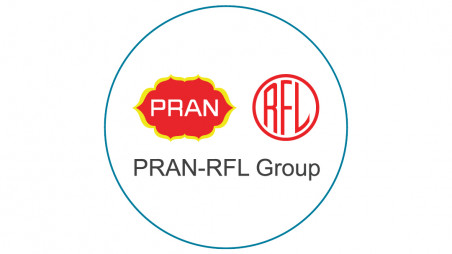Pran-RFL invests Tk200cr as locally-made lifts gain traction
Around 70–80% of lifts used in the country are still imported

Although Bangladesh's lift market is still largely import-dependent, the demand for locally produced lifts has been steadily growing.
To meet this rising demand, Property Lifts — a subsidiary of Pran-RFL Group — has invested nearly Tk200 crore in producing world-class lifts at affordable prices. Besides Property Lifts, Walton is currently the only other company producing lifts in Bangladesh.
Around 70–80% of lifts used in the country are still imported. However, with local companies now supplying high-quality lifts that meet international standards, the trend of heavy reliance on imports is gradually declining.
Company officials say they also plan to expand into manufacturing motors and control panels in the future.
Industry insiders note that to supply customers with world-class lifts, Property Lifts has established a factory equipped with advanced labs and modern testing facilities, with particular focus on high-tech motors and control panels.
This has allowed the company not only to match global brands in quality and safety, but also to provide more affordable options compared to imported lifts, thanks to higher local value addition.
Urbanisation, population density, and land scarcity are fuelling the demand for multi-storey buildings, making lifts increasingly essential. Their use has become almost indispensable in residential buildings, offices, hospitals, and industrial and commercial complexes.
Property Lifts began its journey in 1988 through importing lifts, but started small-scale production at its own factory in the Danga Industrial Park in Narsingdi in 2018, adhering to international safety standards. Initially, lifts were assembled with imported components, but over time, the company expanded its investment and began producing more components locally.
According to company data, demand for their lifts has been growing 20–30% annually. The company sold 329 units last year, compared to 288 in 2023, 244 in 2022, 156 in 2021, and 125 in 2020.
Company officials believe that the rapid growth of the construction sector has created a golden opportunity for Bangladesh's lift industry. Lifts have become essential in buildings higher than two storeys. But as prices remain high, many refrain from installing them. If lifts are produced on a larger scale locally, costs will fall significantly, and demand could surge overnight.
RFL Group Managing Director RN Pal said, "Over the years, we have seen that customers want world-class lifts with guaranteed safety, but at the same time, they want affordable prices. In the past, lifts meant only imported lifts, which were not only expensive but also difficult to customise for older buildings.
"Many customers want reasonably priced lifts for a four-storey house or a three-storey market. That is why we decided to set up a lift factory in Bangladesh."
"We believed that if we could increase value addition locally, costs would come down and usage would rise. Now we can easily supply customised lifts based on consumer needs, thanks to having our own factory," he added.
Property Lifts are already in use at Payra Thermal Power Plant, Korean EPZ, Bay Economic Zone, the ILO office, British American Tobacco Ltd, PDL Padma Resort, and Chattogram Army Medical College, among many other places, according to RN Pal.
The market now offers passenger lifts, cargo lifts, hospital lifts, home lifts, capsule lifts, hydraulic lifts, and scissor lifts. Depending on capacity and features, prices range from Tk15 lakh to Tk1 crore. Locally made lifts are Tk5–7 lakh cheaper than equivalent imported ones.
The country's lift market is currently valued at Tk1,300 crore, with an average annual sale of 4,500–5,000 units, growing at 10–15% annually. Experts expect this growth rate to rise further if local companies expand production capacity and the government provides policy support. With large-scale domestic production, the industry could potentially double its growth rate and sustain it for at least five years.
Currently, 45% of demand comes from Dhaka and surrounding areas, 20% from Chattogram. Industry insiders believe that if prices fall with mass-scale local production, demand will spread across the country.
In addition to producing its own lifts, Property Lifts is also the sole distributor of Kone, Macpuarsa, and SRH lifts in Bangladesh. Company officials say that apart from a few electromechanical parts, almost everything can be produced locally, which would further reduce production costs and boost demand.
At present, Property Lifts achieves over 40% value addition locally. Although raw materials are still imported, the company plans to complete 80% of fabrication and assembly work in Bangladesh. It has set a target to produce 80% of components domestically within the next five years. The factory features a modern testing tower where lifts can be tested at a speed of 3 metres per second, which plays a crucial role in quality control.
The Narsingdi factory currently employs 210 workers, while more than 1,000 people are engaged in installation and servicing. To ensure safe lift installation and maintenance nationwide, the company plans to recruit another 5,000 workers.
Company officials stress that government policy support is essential. Without encouraging the use of local products, competing with foreign brands will be difficult. They urged the government to encourage domestic lifts in various projects.
Beyond the domestic market, Property Lifts is also eyeing exports. Starting this year, the company will participate in trade fairs in Germany, Europe, and the US to showcase Bangladesh's lift manufacturing capacity.
The company believes that with the right policy support and increased public awareness, Bangladesh can not only become self-reliant in lift production but also secure a strong foothold in the global market.



 Keep updated, follow The Business Standard's Google news channel
Keep updated, follow The Business Standard's Google news channel
















